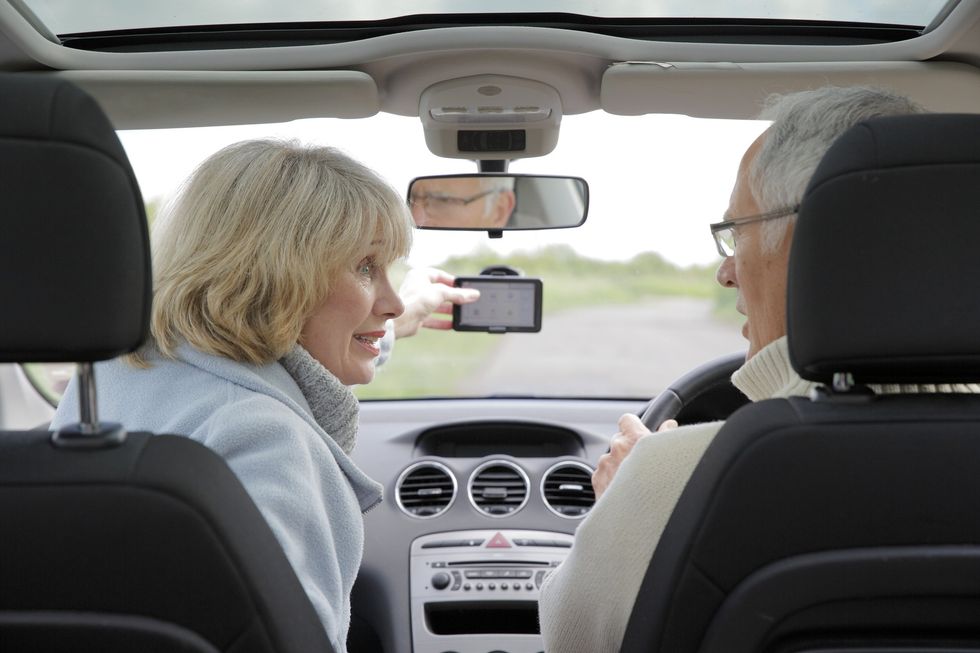Elderly drivers have to renew their licence at 70 without needing medical approval
Don't Miss
Most Read
Trending on GB News
Experts have called for stricter rules and requirements to be introduced for elderly drivers to ensure they remain safe to travel on UK roads.
Proposals have been put forward to bring in new laws as research shows an increasing number of drivers remaining on the road at older ages.
Data found that the number of drivers aged 100 and over in the UK reached a record high of 597 in 2023, more than tripling from 195 a decade ago.
Currently, drivers over 70 only need to self-certify their fitness to drive every three years, without medical approval, although they do need to renew their licence more often than other age groups.
Do you have a story you'd like to share? Get in touch by emailingmotoring@gbnews.uk

The proposal would see elderly drivers face check-ups every three years to ensure they remain road safe
GETTY
Instead of mandatory retests, experts have suggested introducing a simple three-yearly "driver MOT" which involves a check-up focusing on reaction speed, eyesight and awareness. This approach aims to maintain safety without forcing older drivers off the road.
Andrew Jervis, Co-Founder and CEO at ClickMechanic, said: "It's a tricky balance keeping all road users safe without making older drivers feel like they're being pushed off the road.
"Drivers over 70 are more likely to be involved in fatal accidents, but they have fewer accidents overall. A better option might be a simple three-yearly 'driver MOT'."
He explained that older drivers tend to take better care of their cars by getting them serviced more regularly, which "could actually make their vehicles safer".
Meanwhile, COO Mike Thompson explained that the idea of retesting elderly drivers is often raised, "but the reality is that age alone doesn't determine how safe someone is on the road".
Thompson suggested instead there should be a focus on ability rather than age, with regular health checks and better education of modern vehicle safety systems.
Despite suggestions, a recent survey from Road Safety GB revealed that more than two-thirds (67 per cent) of UK drivers want senior drivers to retake their practical driving test at a certain age.
The most popular age range selected for retesting was between 70 and 74 years (33 per cent), with almost half (49 per cent) of respondents thinking older people should retake every two or three years.
Millennials were the most supportive of retesting, with 79 per cent agreeing it should be mandatory, while just 45 per cent of those aged over 65 were supportive of the idea.
Top reasons for backing new tests included concerns about slower reaction times (64 per cent), sight issues (62 per cent), deteriorated health (52 per cent) and deteriorated attention (51 per cent).
Health conditions that can affect older drivers include medication side effects, vision problems, hearing loss, mobility issues and memory problems.
Third parties, including family members, doctors and police, can also notify the DVLA about health concerns. Age UK mobility centres offer assessments to help older drivers continue driving safely for as long as possible.
LATEST DEVELOPMENTS:
 Elderly drivers have to renew their licence every three years once they reach 70 years of age GETTY
Elderly drivers have to renew their licence every three years once they reach 70 years of age GETTYThese centres can recommend adaptations to vehicles that could help older people maintain their independence on the road. The DVLA may cover assessment costs if requested after declaring a medical condition.
For older drivers, giving up driving can significantly impact their independence and quality of life, the charity warned.
Alternatives include public and community transport options, with possible concessions available. Age UK advisedresearching alternatives before discussing the issue with elderly relatives or friends. But if serious concerns persist about someone's driving, the DVLA can be contacted confidentially.









